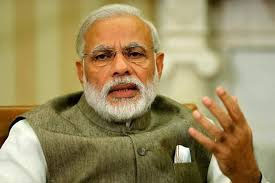New Delhi/Mumbai
Prime Minister of India Narendra Modi met his council of ministers on Saturday to discuss security measures related to the protests, as demonstrations continued on Saturday despite curfews and tough measures aimed at shutting down the protests.
More than 1,500 protesters have been arrested across India in the past 10 days, officials said, as police try to quell sometimes violent demonstrations against a citizenship law that critics say undermines the country’s secular constitution.
Three people were killed Saturday during clashes between demonstrators and police in northern India, raising the nationwide death toll in protests against a new citizenship law to 19.
O.P. Singh, the chief of police in Uttar Pradesh state, said the latest deaths increased the death toll in the state to nine since Friday, when police clashed with thousands of protesters who took to the streets in several parts of the country to oppose the new law, which they say discriminates against Muslims.
“The number of fatalities may increase,” Singh said. He did not give further details on the latest deaths.
Additionally, some 4,000 people have been detained and then released, the officials said.
Those arrested and detained had been resorting to violence during the protests, said two senior federal government officials overseeing the country’s internal security.
Hundreds of protesters and police have been injured in the protests, the strongest show of dissent against Prime Minister Narendra Modi’s Hindu nationalist government since he was first elected in 2014.
India’s most populous state, Uttar Pradesh, has seen the worst violence with nine people killed and several more in critical conditions in hospital. The state, which has long seen clashes between majority Hindus and minority Muslims, is ruled by Modi’s nationalist party.
Rights activists in the state said police had raided their houses and offices to prevent them from planning fresh demonstrations. Authorities also shut schools across the state as fresh protests erupted on Saturday.
“Women in Assam have shown that we can lead a movement from the front,” Garima Garg, a fashion designer, told Reuters. She was among thousands who took part in an all-woman protest across Assam on Saturday.
Critics of the law say it has struck a blow to a country that has long taken pride in its secular constitution. India has a population of 1.3 billion, with a majority of Hindus, a large minority of Muslims and several other smaller faiths. “This piece of legislation strikes at the heart of the Constitution, seeking to make India another country altogether,” prominent historian Ramachandra Guha wrote in The Telegraph.— Reuters










